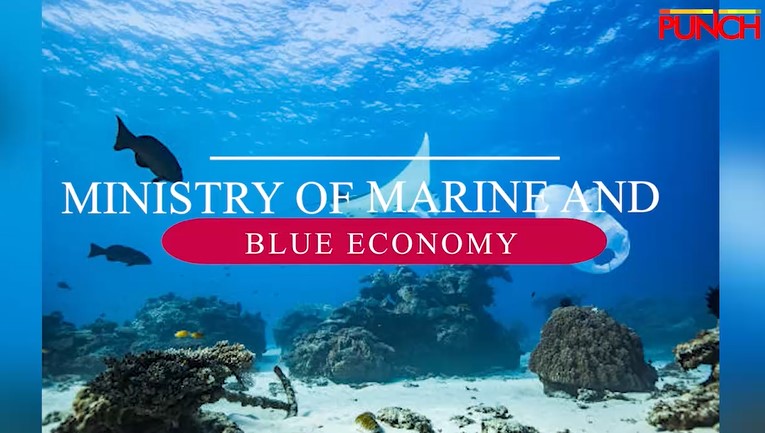The Nigerian Ministry of Marine and Blue Economy, newly established to harness the nation’s extensive maritime resources, has found itself at the center of a budgetary controversy. The proposed N38.3 billion capital expenditure allocation in the 2025 Appropriation Bill has drawn sharp criticism from maritime experts and stakeholders, who argue that the sum is grossly inadequate to effectively develop the sector and unlock its vast economic potential. This allocation represents a mere fraction of the proposed N49.7 trillion total expenditure, raising concerns about the government’s commitment to leveraging the blue economy as a driver of economic diversification and growth. Critics contend that the paltry allocation reflects a misplaced prioritization, favouring traditional infrastructure sectors while neglecting the immense opportunities presented by the blue economy.
The core of the contention lies in the perceived mismatch between the ministry’s mandate and its allocated resources. The N38.3 billion, which includes N35.7 billion for capital expenditure, N744 million for overhead, and N1.8 billion for personnel, is deemed insufficient to cover the ministry’s expansive responsibilities, ranging from underwater exploration and research to overseeing various agencies related to fisheries and other maritime activities. Experts like Mr. Eugene Nweke, Head of Research at Sea Empowerment and Research Centre (SEREC) and former president of the National Association of Government Approved Freight Forwarders, argue that this amount barely scratches the surface of the funding required for the ministry to fulfill its mandate and meet stakeholders’ expectations. They posit that the government appears to be treating the ministry as an experimental venture, lacking full conviction in the blue economy’s transformative potential.
The inadequacy of the allocation is further underscored by the ministry’s broad scope and integration with other government bodies. Dr. Obiora Madu, Director-General of the African Centre for Supply Chain and president of the Association of Outsourcing Professionals, highlights the complex interplay between the Ministry of Marine and Blue Economy and at least three other ministries, raising questions about jurisdictional overlap and the potential for conflicting mandates. He suggests that a dedicated marine economy commission might be a more effective structure to manage the multifaceted aspects of the blue economy, ensuring streamlined operations and avoiding bureaucratic entanglement. This perspective emphasizes the need for a more comprehensive and integrated approach to blue economy development, transcending ministerial boundaries and fostering collaborative governance.
Captain Tajudeen Alao, President of the Nigerian Association of Master Mariners, echoes the concerns about the budgetary constraints, emphasizing the challenges posed by the ministry’s diverse responsibilities, particularly its oversight of agencies related to fisheries. He argues that the N38.3 billion allocation barely covers essential start-up costs and falls far short of addressing the additional operational requirements of the ministry and its affiliated agencies. This perspective underscores the need for a more realistic assessment of the financial needs associated with developing the blue economy, taking into account the breadth of activities and the resources required for their effective execution.
The criticism surrounding the budget allocation highlights a fundamental disconnect between the government’s rhetoric about economic diversification and its actual investment in emerging sectors like the blue economy. While the government acknowledges the potential of the maritime sector, the allocated resources appear to contradict this recognition. This discrepancy raises questions about the government’s genuine commitment to prioritizing the blue economy and leveraging its potential to create jobs, generate revenue, and contribute to sustainable economic growth. The insufficient funding not only hampers the ministry’s ability to fulfill its mandate but also sends a discouraging signal to potential investors and stakeholders, potentially hindering the development of a vibrant and thriving blue economy.
The debate over the Ministry of Marine and Blue Economy’s budget underscores the critical need for a more strategic and forward-looking approach to resource allocation. Experts argue that investing adequately in the blue economy is not merely an expenditure but a strategic investment in Nigeria’s future. By providing the necessary resources, the government can unlock the immense potential of this sector, contributing significantly to economic diversification, job creation, and sustainable development. Failing to do so risks squandering a valuable opportunity to harness a key driver of economic growth and prosperity. The call for increased funding is not simply a plea for more money; it is a call for a paradigm shift in how the government prioritizes and invests in emerging sectors with the potential to transform the Nigerian economy.


